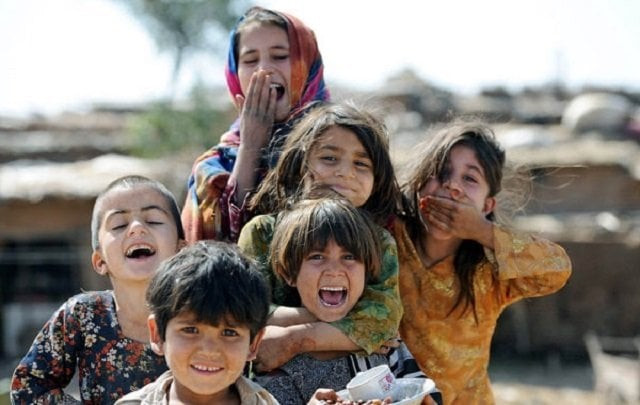The good news from Pakistan
And there is a lot of good news to share

In K-P, we are directly supporting 250,000 children to gain a decent education, and indirectly benefiting 4.8 million children by supporting education reforms. Girls’ education is a top priority for us. PHOTO: courtesy Inqalaab.tumblr.com and pace.pk
And there is a lot of good news to share. Over the past five years, the UK’s Department for International Development (DFID) has worked with provincial governments in Khyber-Pakhtunkhwa and Punjab to deliver tangible progress in social service delivery. And the statistics speak for themselves. In K-P, we are directly supporting 250,000 children to gain a decent education, and indirectly benefiting 4.8 million children by supporting education reforms. Girls’ education is a top priority for us, and so it is with pride that I think about the 1,800 community schools that have been established for girls alone — providing education for close to 100,000 students.
In health, we have supported reforms in K-P that resulted in a majority of all basic health units having a full-time doctor by May 2017 — so important for delivering better quality healthcare to people. The road map on health started in K-P in 2015, and as a result, medicine availability is up from 46% to 67% — proof that things are changing, and that rapid change is possible.
In Punjab, we have supported education reforms that have resulted in 1.6 million more children in government schools since 2012. Six-monthly learning assessments of grade three children in Urdu, English and Maths have improved from an average of 55% in 2014/15 to 77% in 2018 — despite pessimism about this being possible. 100,000 teachers have been recruited in academic year 2017/18 alone. Just two weeks ago I heard from girls themselves in Model Town how having enough teachers for all of the classes helped them to learn more.
Through the health road map, since 2014 we have supported the increase of medicine availability in Punjab from 73% to 92%. Immunisation in children between 12-23 months has increased from 49% to 84% across Punjab, with every district showing improvements — a phenomenal success. Skilled birth attendance increased from 68% to 81% of births with 325,000 additional children each year born with medical care in the first moments of life. This is why I can’t quite believe my ears when people tell me things aren’t changing in Pakistan.
I lead DFID’s work in Pakistan, supporting the federal and provincial governments to deliver on our shared goals of reducing poverty and improving people’s lives. This week, I participated in the “stocktakes” that the chief minister of Punjab holds with his key officials and development partners every quarter, focused on education, health, water and clean cities. The “stocktakes” tend to be a time for focusing on problems that need solving, as well as forensic assessments of progress against key indicators every three months. But these stocktakes are a bit special — as the final ones for this parliamentary term, they are our chance to step back and reflect on all that has changed.
This led me to particularly think about human development in K-P and Punjab. Why has the approach taken achieved so many results? It is a combination of many things — including strong partnerships, the dedication and prioritisation of leaders, and a vocal and vibrant civil society that has facilitated dialogue and vocalised citizens’ views on these agendas.
But my own take is that the magic ingredient in these achievements is a laser-sharp focus on a manageable number of specific, measurable and time-barred targets, supported by systematic reforms. Both are essential. Taking this approach forwards will reap further rewards. We shouldn’t underestimate the remaining challenges ahead. We must ensure we leave no one behind. DFID stands ready as Pakistan’s long-standing partner on these agendas.
Published in The Express Tribune, March 25th, 2018.
Like Opinion & Editorial on Facebook, follow @ETOpEd on Twitter to receive all updates on all our daily pieces.















COMMENTS
Comments are moderated and generally will be posted if they are on-topic and not abusive.
For more information, please see our Comments FAQ